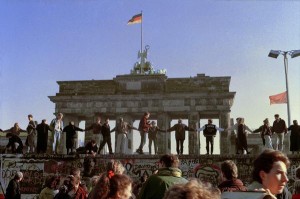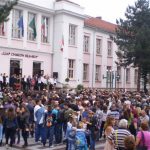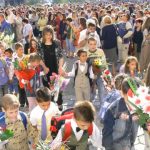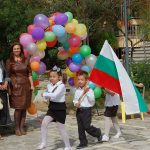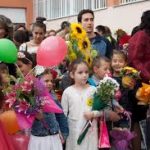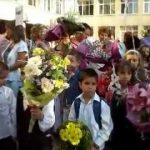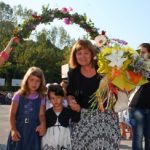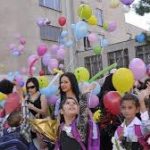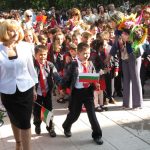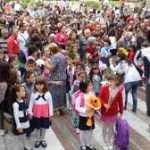Creation and the Cross
BY HENRY M. MORRIS, PH.D. | THURSDAY, APRIL 01, 1976
The two greatest events in all history are the creation of the world and the redemption of the world. Each of these events involved a great divine Week of work and a Day of rest. Creation Week accomplished the work of man’s formation; the week that is called Holy Week or Passion Week (perhaps a better term would be Redemption Week) accomplished the work of man’s salvation.
Creation Week, which culminated in a perfect world (Genesis 1:31), was followed by man’s fall and God’s Curse on the world (Genesis 3:17). Passion Week, which culminated in the death and burial of the maker of that perfect world, is followed by man’s restoration and the ultimate removal of God’s Curse from the world (Revelation 22:3). A Tree (Genesis 3:6) was the vehicle of man’s temptation and sin; another Tree (I Peter 2:24) was the vehicle of man’s forgiveness and deliverance.
The Two Weeks
It is fascinating to compare the events of the seven days of Creation Week and Redemption Week, respectively. The chronology of the events of Redemption Week has been the subject of much disagreement among scholars, and it is not possible to be certain on a number of the details. The discussion below is not meant to be dogmatic, but only to offer a possible additional dimension to their understanding and harmony. The traditional view that Friday was the day of the crucifixion is further strengthened by the correlations suggested in this study.
(1) First Day. The first day of creation involved the very creation of the universe itself (Genesis 1:1). An entire cosmos responded to the creative fiat of the Maker of heaven and earth. Initially this Space-Mass-Time (i.e., heaven, earth, beginning) continuum was created in the form of basic elements only, with no structure and no occupant (Genesis 1:2), a static suspension in a pervasive, watery matrix (II Peter 3:5). When God’s Spirit began to move, however, the gravitational and electromagnetic force systems for the cosmos were energized. The waters and their suspensions coalesced into a great spherical planet and, at the center of the electromagnetic spectrum of forces, visible light was generated (Genesis 1:3).
In a beautiful analogy, on the first day of Passion Week, the Creator King of the universe entered His chosen capital city (Zechariah 9:9,10; Matthew 21:1-9) to begin His work of redemption, as He had long ago entered His universe to begin His work of creation. Even the very elements He had created (Luke 19:39, 40) would have acknowledged His authority, though the human leaders of His people would not.
(2) Second Day. Having created and activated the earth, God next provided for it a marvelous atmosphere and hydrosphere in which, later, would live the birds and fishes. No other planet, of course, is equipped with air and water in such abundance, and this is strong evidence that the earth was uniquely planned for man and animal life. The hydrosphere was further divided into waters below and waters above “the firmament.” The waters above the firmament (the Hebrew word for firmament means, literally “stretched-out space”) probably comprised a vast blanket of transparent water vapor, maintaining a perfect climate worldwide, with ideal conditions for longevity.
Paralleling the primeval provision of life-sustaining air and water, on the second day of Redemption Week, He entered again into the city (having spent the night in Bethany) and taught in the temple. As He approached the city, He cursed the barren fig tree (Mark 11:12-14) and then, in the temple, overthrew the tables of the money changers (Mark 11:15-19). This seems to have been the second time in two days that He had turned out the money changers (the parallel accounts in Matthew and Luke indicate that He also did this on the first day). Both actions¾the cursing of the fig tree and the cleansing of the temple¾symbolize the purging of that which is barren or corrupt in the Creator’s kingdom. He had created a world prepared for life (air for the breath of life and water as the matrix of life), but mankind, even the very teachers of His chosen people, had made it unfruitful and impure. As physical life must first have a world of pure air and water, so the preparations for a world of true spiritual life require the purifying breath of the Spirit and the cleansing water of the Word, preparing for the true fruit of the Spirit and the true temple of God’s presence, in the age to come.
(3) Third Day. The next day, the sight of the withered fig tree led to an instructive lesson on faith in God, the Lord Jesus assuring the disciples that real faith could move mountains into the sea (Mark 11:20-24). In parallel, on the third day of creation, God had literally called mountains up out of the sea (Genesis 1:9,10).
It was also on this day that the Lord had the most abrasive of all His confrontations with the Pharisees and Sadducees. He spoke many things against them and they were actively conspiring to destroy Him. It is appropriate that His challenges to them on this day began with two parables dealing with a vineyard (Matthew 21:28-32 and Matthew 21:33-43; see also Mark 12:1-11 and Luke 20:9-18), in which He reminded them that they had been called to be in charge of God’s vineyard on the earth, and had failed. Like the fig tree, there was no fruit for God from their service, and therefore, they would soon be removed from their stewardship.
Likewise, the entire earth was on the third day of Creation Week prepared as a beautiful garden, with an abundance of fruit to nourish every living creature (Genesis 1:11,12) and it had been placed in man’s care (Genesis 1:28-30; 2:15). But mankind in general, and the chosen people in particular, had failed in their mission. Before the earth could be redeemed and made a beautiful garden again (Revelation 22:2), it must be purged and the faithless keepers of the vineyard replaced.
This third day of Passion Week was climaxed with the great Sermon on the Mount of Olives in which the Lord promised His disciples that, though Jerusalem must first be destroyed, He would come again, in power and great glory, to establish His kingdom in a new Jerusalem (Matthew 24 and 25; Mark 13; Luke 21). It was appropriate that He should then spend the night following that third day, with the handful of disciples who were still faithful to Him, on the Mount of Olives (Luke 21:37), for the Mount would call to memory that far-off third day of Creation Week when He had drawn all the mountains out of the sea. Also, the Garden of Gethsemane on its slopes, with its little grove of vines and fruit trees, would bring to mind the beautiful Garden of Eden and the verdant world He had planted everywhere on the dry land on that same third day. Because of what He was now about to accomplish at Jerusalem (Luke 9:31), the ground would one day be cleansed of its Curse, and all would be made new again (Revelation 21:5).
(4) Fourth Day. On the fourth day of Creation Week, the Lord Jesus had formed the sun and the moon and all the stars of heaven. There had been “light” on the first three days, but now there were actual lights! Not only would the earth and its verdure be a source of beauty and sustenance to man, but even the very heavens would bring joy and inspiration to him. Furthermore, they would guide his way and keep his time.
But instead of the stars of heaven turning man’s thoughts and affections toward His Creator, they had been corrupted and identified with a host of false gods and goddesses. Furthermore, instead of creating a sense of awe and reverence for the majesty of the One who could fill all heavens, they had bolstered man’s belief that the earth is insignificant and meaningless in such a vast, evolving cosmos. Perhaps thoughts such as these troubled the mind of the Lord that night as He lay on the mountain gazing at the lights He had long ago made for the darkness.
When morning came, He returned to Jerusalem, where many were waiting to hear Him. He taught in the temple (Luke 21:37, 38), but the synoptic gospels do not record His teachings. This lack, however is possibly supplied in the apparently parenthetical record of His temple teachings as given only in the fourth gospel (John 12:20-50) because there the Lord twice compared Himself to the Light He had made: “I am come a light into the world, that whosoever believeth in me should not abide in darkness.” “Yet a little while is the light with you. Walk while ye have the light, lest darkness come upon you; for he that walketh in darkness knoweth not whither he goeth” (John 12:46, 35). He who was the true Light must become darkness, in order that, in the new world, there would never be night again (Revelation 22:5).
(5) Fifth Day. There is little information given in the gospels about the fifth day of Redemption Week. When there were yet “two days until the Passover” (Mark 14:1), right after the bitter confrontation with the scribes and chief priests on the Third Day, the latter began actively seeking a means to trap and execute Jesus, though they feared to do it on the day on which the Passover Feast was to be observed (Mark 14:2). It was either on the Fourth Day or possibly on this Fifth Day, which was the feast day, that Judas went to them with his offer to betray Jesus. He had apparently been seriously thinking about this action ever since the night when the Lord had rebuked him for his cupidity. This had been in the home in Bethany, on the night of the Sabbath, just before the day when Christ entered Jerusalem riding on the ass (John 12:1-8). This seems to have been the same supper described in Matthew 26:6-13 and Mark 14:3-9, even though in these it is inserted parenthetically after the sermon on the Mount of Olives, probably in order to stress the direct causal relation of this supper to Judas’ decision to betray his Master (Matthew 26:14-16; Mark 14:10-11).
On this day of the Passover, the Lord Jesus instructed two of His disciples to make preparations for their own observance of the feast that night (Mark 14:12-17). So far as the record goes; this is all that we know of His words during that day, though there is no doubt that He was teaching in the temple on this day as well (Luke 21:37, 38). Perhaps this strange silence in the record for this Fifth Day is for the purpose of emphasizing the greater importance of these preparations for the Passover. The fact that John indicates the preparation day to have been the following day (John 19:14) is probably best understood in terms of the fact that, at that time, the Galileans are known to have observed the Passover on one day and the Judeans on the following day.
Multitudes of sacrificial lambs and other animals had been slain and their blood spilled through the centuries, but this would be the last such acceptable sacrifice. On the morrow, the Lamb of God would take away the sins of the world (John 1:29). He would offer one sacrifice for sins forever (Hebrews 10:12). With the blood of His cross, He would become the great Peace Maker, reconciling all things unto the Maker of those things (Colossians 1:16, 20).
As the Lord thought about the shedding of the blood of that last Passover lamb on that Fifth Day of Holy Week, He must also have thought of the Fifth Day of Creation Week, when He had first created animal life. “God created every living creature (Hebrew nephesh) that moveth” (Genesis 1:21). This had been His second great act of creation, when He created the entity of conscious animal life (the first had been the creation of the physical elements, recorded in Genesis 1:1). In these living animals, the “life” of the flesh was in their blood, and it was the blood which would later be accepted as an atonement for sin (Leviticus 17:11). Note that the words “creature,” “soul,” and “life” all are translations of the same Hebrew word nephesh. Surely the shedding of the innocent blood of the lamb that day would recall the far-off day when the “life” in that blood had been created. And because He, the Lamb of God, was about to become our Passover (I Corinthians 5:7), death itself would soon be swallowed up in victory and life (1 Corinthians 15:54).
(6) Sixth Day. On the Sixth Day, man had been created in the image and likeness of God, the very climax and goal of God’s great work of creation (Genesis 1:26, 27). But on this Sixth Day, God, made in the likeness of man, finished the even greater work of redemption.
Under the great Curse, the whole creation had long been groaning and travailing in pain (Romans 8:22). But now the Creator, Himself, had been made the Curse (Galatians 3:13; Isaiah 52:14), and it seemed as though the Creation also must die. Though He had made heaven and earth on the First Day, now He had been lifted up from the earth (John 3:14) and the heavens were silent (Matthew 27:46). Though He had made the waters on the Second Day, He who was the very Water of Life (John 4:14), was dying of thirst (John 19:28).
On the Third Day He had made the dry land, but now the “earth did quake and the rocks rent” (Matthew 27:51) because the Rock of salvation had been smitten (Exodus 17:6). He had also covered the earth with trees and vines on that third day, but now the True Vine(John 15:1) had been plucked up and the Green Tree (Luke 23:31) cut down. He had made the sun on the Fourth Day, but now the sun was darkened (Luke 23:45) and the Light of the World (John 8:12) was burning out. On the Fifth Day He had created life, and He Himself was Life (John 11:25; 14:6), but now the life of His flesh, the precious blood, was being poured out on the ground beneath the cross, and He had been brought “into the dust of death” (Psalm 22:15). On the Sixth Day He had created man and given him life, but now man had despised the love of God and lifted up the Son of Man to death.
(7) Seventh Day. But that is not the end of the story, and all was proceeding according to “the determinate counsel and foreknowledge of God” (Acts 2:23). “On the seventh day God ended His work which He had made” (Genesis 1:21). Furthermore, “everything that He had made was very good” (Genesis 1:31). God’s majestic work of Creation was complete and perfect in every detail.
And so is His work of salvation! This is especially emphasized in John’s account: “After this, Jesus knowing that all things were now accomplished, that the Scripture might be fulfilled, saith, “I thirst… When Jesus therefore had received the vinegar, He said, it is finished; and He bowed His head, and gave up the ghost” (John 19:28, 30) (the emphasized words are all the same word in the Greek original). Jesus had finished all the things He had to do, and then He finished the last of the prophetic scriptures that must be carried out. Then, and only then, was the work of redemption completed and the price of reconciliation fully paid, so that He could finally shout (Matthew 27:50) the great victory cry, “It is finished.”
The record of Creation stresses repeatedly that the entire work of the creation and making of all things had been finished (Genesis 2:1-3). In like manner does John’s record stress repeatedly the finished work of Christ on the cross.
Furthermore, as the finished creation was “very good,” so is our finished salvation. The salvation which Christ thus provided on the cross is “so great” (Hebrews 2:3) and “eternal” (Hebrews 5:9), and the hope thereof is “good” (II Thessalonians 2:13).
Then, finally, having finished the work of redemption, Christ rested on the seventh day, His body sleeping in death in Joseph’s tomb. He had died quickly, and the preparations for burial had been hurried (Luke 23:54-56), so that He could be buried before the Sabbath. As He had rested after finishing His work of Creation, so now He rested once again.
On the third day (that is the First Day of the new week), He would rise again, as He had said (Matthew 16:21, et al). His body had rested in the tomb all the Sabbath Day, plus part of the previous and following days, according to Hebrew idiomatic usage, “three days and three nights” (Matthew 12:40)¾but death could hold Him no longer. He arose from the dead, and is now alive forevermore (Revelation 1:8).
35 Years Since the Fall of the Berlin Wall
The Berlin Wall in our Minds
Europe is celebrating the 35th anniversary from the Fall of the Berlin Wall – an event that has changed forever the course of modern history. For us it was more than a miracle to see how people gathered together free from fear of persecution to celebrate the Resurrected Christ. It almost seemed like they celebrated their own resurrection, the resurrection of the Bulgarian Church of God, from the years of trials and persecutions under the Communist Regime.
But 35 years after its fall, the Berlin Wall still stands tall in the eastern European mindset. This is especially true for the country of Bulgaria and the evangelical churches operating on its territory. The Bulgarian Pentecostal Movement has experienced more structural and leadership difficulties in the past decade, than they have in their almost centennial existence. The post-totalitarian model of church leadership had a destructive aftereffect on the two major wings of the movement, as the historically more independent Bulgarian Church of God has experienced a series of biannual splits in the past six years, while the Assemblies of God represented in Bulgaria by the Pentecostal Union Churches is undergoing leadership changes which will leave their mark on its identity as a movement.
The context of ministry is becoming even more accelerant in light of the first 100 days of the new center-rightist Bulgarian government, proposing even newer changes in the religious laws of the country which will limit the government registration only to churches who can prove a membership over 5,000 people. This limit may become unreachable as many church members are among the 4 million Bulgarians who in the past decade have left the country in search of work and a better life and now reside in Western Europe or the United States. If such legal change indeed occurs, more red tape is coming in Bulgaria against the preaching of the Gospel, religious education and faith as a whole, which will be put under the authority of a government religious council upon the recommendation of the European Union and after the Eastern Orthodox monopolistic paradigm of the Russian Federation.
The three local church models which comprise the Bulgarian Evangelical Movement are not ready to face this new brutal attack against their religious freedom. The small village churches, led mostly by mission representatives sent by larger church communities, often waver between different denominations, which results to doubling and some times tripling their registrations thus becoming an easy first target to any new government restrictions.
Over half of the midsize city churches (70-95 members) have emerged after a church split, which has remained as an unfortunate part of their identity, which reoccurs in their life and ministry. This process is valid in both Bulgarian and other ethnic communities in the country with an emphasis on the Roma Gipsy churches. The result is more small and weakened churches or even home group communities who never undergo normal church growth, thus remaining distant from the outside religious life and often closing themselves to a strangely sectarian existence.
Finally, a few nondenominational churches have retained their own evangelical identity leaving the mainstream denominations and continue to build relationships with sponsoring religious organizations outside of Bulgaria. Having gained financial and leadership independency, they have been successful to complete their building projects and enjoy temporary autonomy. Thus, a dozen of large Bulgarian congregations with several hundred in attendance, located in the capital Sofia, the Danube River city of Rousse, the Black Sea ports of Bourgas and Varna and the industrial towns of Plovdiv and Stara Zagora, have undertaken building projects perhaps as more of a business opportunity. But the aftereffect of their bi-decadal efforts, have shifted their focus from ministry toward building ministry centers and have left their financial resources drained and their supporters demotivated in the midst of global economic crises. And so the Wall remains in the mindset and the crises within the identity of the Bulgarian evangelical believer.
Some three and a half decades ago at the Berlin Wall, President Reagan turned to Soviet Prime Minister Michael Gorbachev with the words: “Tear this wall down …” But Gorbachev cannot help tear down the Wall in our minds. This part of the liberation of the human spirit, mind and soul still remains in the perimeter of God’s grace for human salvation. The answer for global crises lies in the spiritual laws set by God in the Bible that still stands strong as the standard for living. And most important of all: the focus of the Bulgarian Church must remain not in building projects or church split competitions, but in the Spirit given mission of salvation of eternal human souls. Pray for BULGARIA.
First Day of School in Bulgaria
Never Forget
A Call to Stand Against Demonic Works
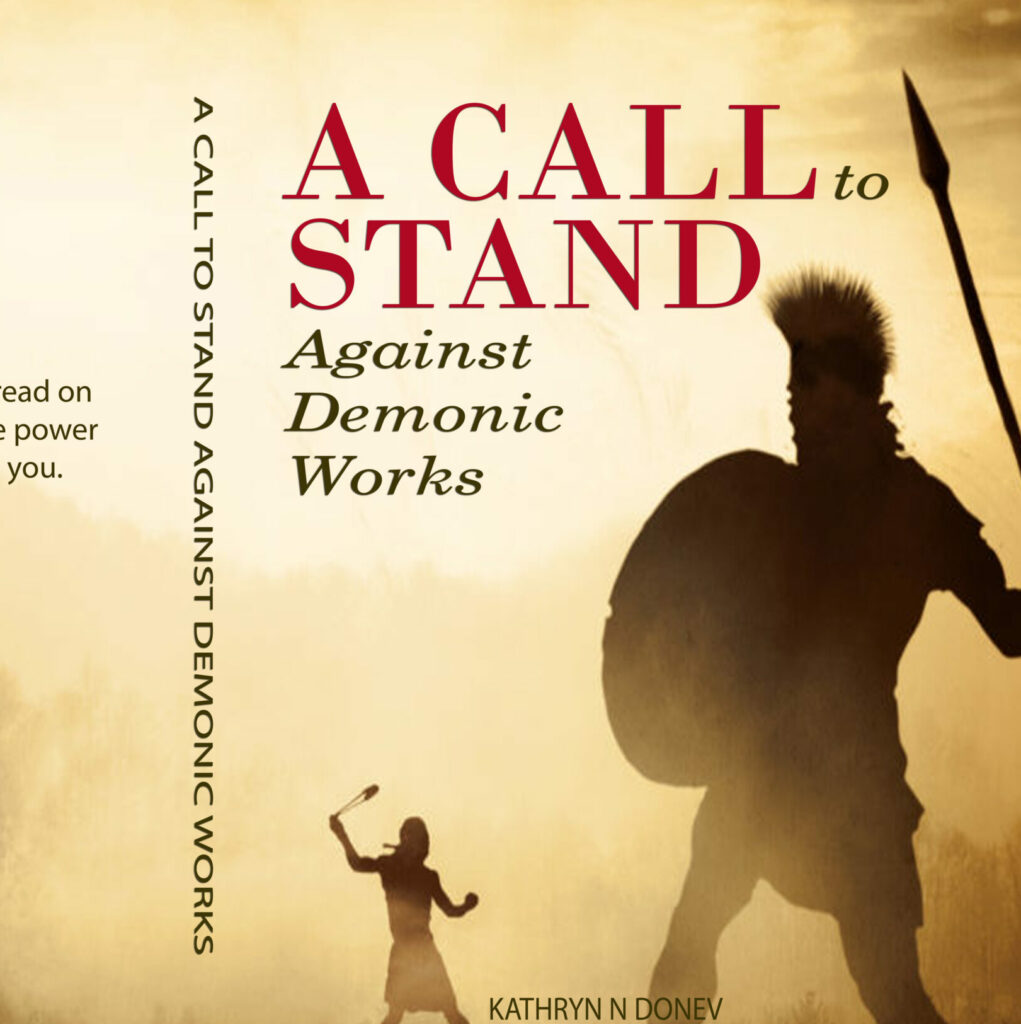
Read more here: A CALL
The Forgotten Etowah Revival
By 1907 Church of God overseer AJ Tomlinson was well aware of the Etowah outpowering going on in parallel with the Azusa Revival. He also used the Etowah L&N many times during his travels. But chose Cleveland (on the famous Copper Road route), because Cleveland had not seen revival just yet. And this was about to change soon…
Bradley County, Cleveland, Tennessee was the western terminus of the Copper Road where copper ore from Ducktown and Copperhill was brought by wagons to the East Tennessee & Georgia RR. It was completed to Cleveland from Dalton, Georgia in 1851. In 1905 the Southern Railway hired New York architect Don Barber to design what became known as “Terminal Station” of the Chattanooga Choo-Choo, which in parallel to the Etowah L&N Depot began construction in 1907 and opened in 1909. So, no, the choice Tomlinson made was not obvious at all, neither it was based on the train line per se. He did not want to compete with the Etowah and Chattanooga revivals, and settled for Cleveland instead…
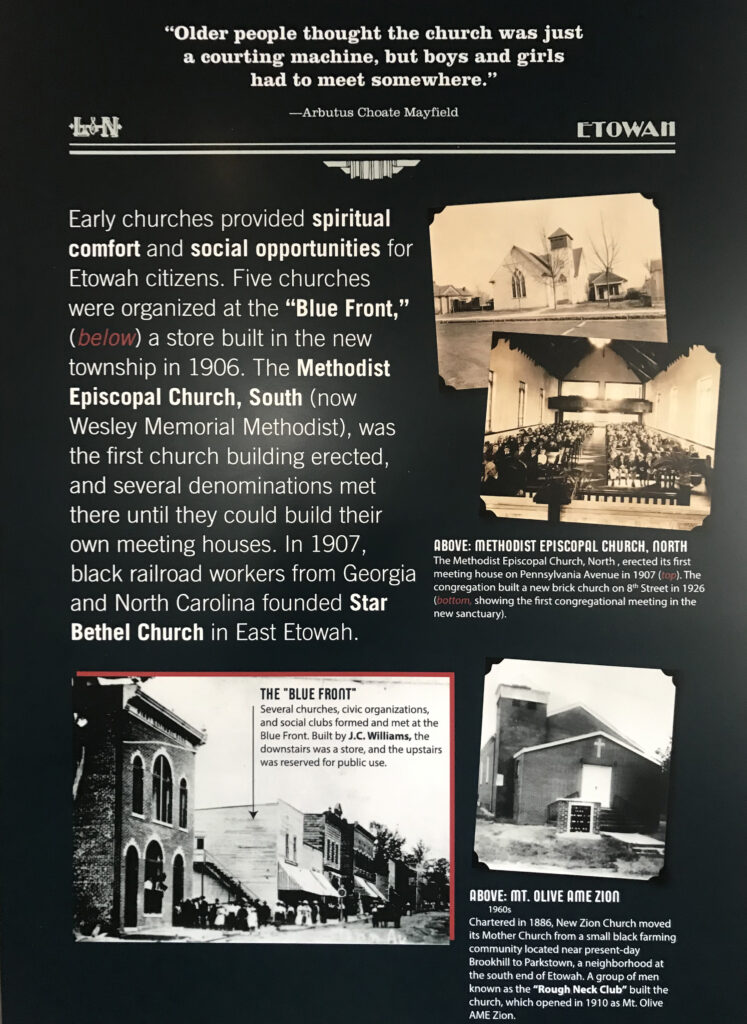 The Forgotten Etowah Revival
The Forgotten Etowah Revival
It started with the Old-Line Railroad quickly built in 1890 as part of a project to link Knoxville, TN to Marietta, GA by rail. Just a few short years afterwards, a distinctive feature was built as part of the line, the Hiwassee Loop, a circle of track that was built around Bald Mountain. The story told that when the workers came down from the mountain to build the L&N line and depot to connect the Hiwassee River Rail Loop, there wasn’t much to do except work. On the weekend, many of them flooded the old Methodist church across from today’s Etowah‘s chamber of commerce, mainly to look for women (as old timers plainly put it). А holiness preacher was carrying on a revival there, many were convicted under the power of the Holy Spirit and got saved.
Those were the years of ongoing holiness revivals across Appalachia. Out West, the Pentecostal revival at Azusa was already brewing. Much like the rest of the holiness outpourings, the Etowah revival swept through the area. Not just workers, but the local population was touched as well. The upper room at “Blue Front” built by J.C. Williams built in 1906, where revival meetings were held, became the starting point of at least five local congregations.
At the same time, the Church of God movement was gaining speed on the other side of the mountain. Murphy, Tellico Plains and Reliance all became sites of the first holiness Spirit outpourings. In just a short amount of time, the Church of God grew and moved down the trainline to Cleveland, TN. Interestingly enough, most of the trainline was built along old confederate routes, which followed the Trail of Tears.
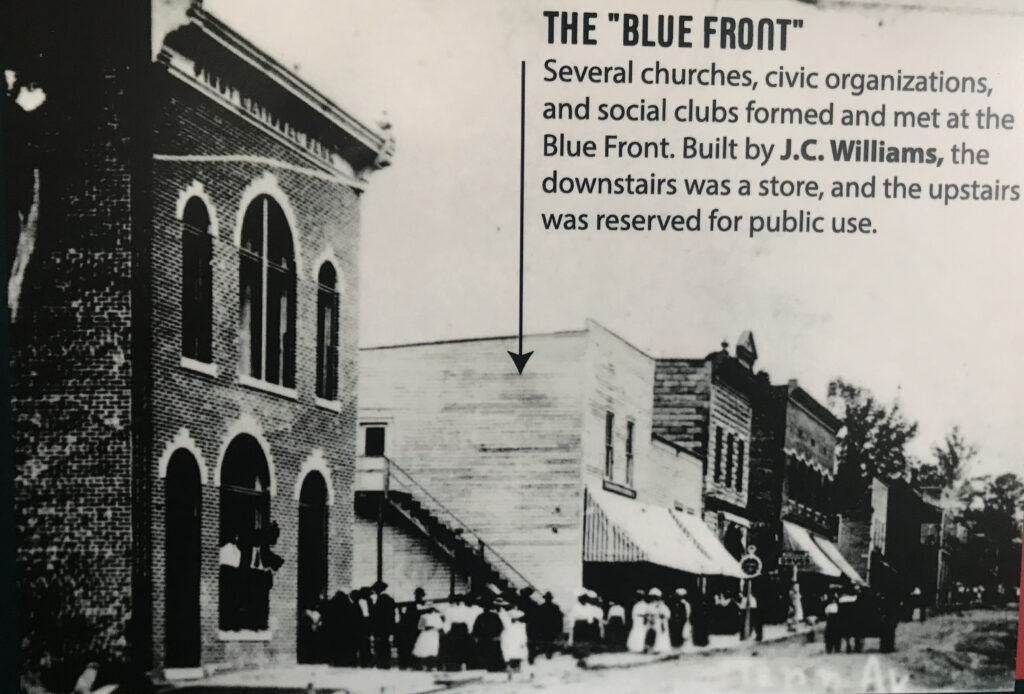
The Tellico Blockhouse was the starting point for the Old Federal Road, which connected Knoxville to Cherokee settlements in Georgia. The route ran from Niles Ferry on the Little Tennessee River near the present-day U.S. Highway 411 Bridge, southward into Georgia. Starting from the Niles Ferry Crossing of the Little Tennessee River, near the U.S. Highway 411 bridge, the road went straight to a point about two miles east of the present town of Madisonville, Tennessee. This location is 20 some miles north of the Tellico Plains area that marks the site of the beginning of the Church of God (Cleveland, Tennessee). The road continued southward via the Federal Trail connecting to the North Old Tellico Highway past the present site of Coltharp School, intersected Tennessee Highway 68 for a short distance and passed the site of the Nonaberg Church. East of Englewood, Tennessee it continued on the east side of McMinn Central High School and crossed Highway 411 near the railroad overpass. Along the west side of Etowah, the road continued near Cog Hill and the Hiwassee River near the mouth of Conasauga Creek where there was a ferry near the site of the John Hildebrand Mill. From the ferry on the Hiwassee River the road ran through the site of the present Benton, Tennessee courthouse. It continued on Welcome Valley Road and then crossed the Ocoee River at the Hildebrand Landing. From this point the road ran south and crossed U.S. Highway 64 where once stood the River Hills Church of God (Ocoee Church of God).
Revival Continues
In 2023, over a dozen of churches from the greater Conasauga, Reliance, Ocoee, Old Fort, Benton, and Delano communities along with the two oldest Polk County congregations at Cookson Creek and Friendship Baptist, joined piece by piece the original revival vision God has given to many ministers for this area of East Tennessee. While a few saw it as a spiritual connection with the brief spark of the Lee University student revival earlier in the year, most were convinced it was the restoration movement of the original Appalachian/Cherokee holiness outpouring, which took place among L&N Depot and Hiwassee River Rail Loop workers in the old Methodist church at the “Blue Front” across from Etowah‘s chamber of commerce. In 2023, the Polk Co. Revival began in September and carried on well through the fall until Thanksgiving. This year, even more churches in the area are praying again for a fresh outpouring of the Spirit expecting another revival to sweep the hearts of many in the area where no more than a century ago, the Early Revival Rain fell in abundance.
Blinded by Smoke and Mirrors
Blinded by Smoke and Mirrors
by Kathryn Donev
We are not to mess around in any way, shape or form with any type of witchcraft or divination. This is a command that the Bible is super transparent about. There is no question whether or not it’s okay. In Exodus we are told not to tolerate a sorceress or a woman that has magical powers or paranormal abilities. In Leviticus it is clear that we are not to practice divination or fortune soothsaying. The message is so direct that in Leviticus 20:27 it says that a man or a woman who has a ghost or a familiar spirit shall be put to death; they shall be pelted with stones. Not just a slap on the wrist or a gentle verbal scolding. And I don’t know about you, but to me, being stoned to death is a dreadful way to die.
In Deuteronomy 18:10-11 it says, “Let no one be found among you who consigns a son or daughter to the fire, or who is an augur, a soothsayer, a diviner, a sorcerer, one who casts spells, or one who consults ghosts or familiar spirits, or one who inquires of the dead”. There is no question about it. These practices are all wrong. Period. End of story. No debate. No talking your way out of it. It can’t get any clearer. We know what will happen if we are tempted with this nonsense. Remember what happened to Aaron’s sons when they played with false fire. There are no second chances, and the consequence is for an eternity. Division from Christ. No eternal life. No Heavenly reward. It is serious. It’s not a game. Right? Are we clear to this point? Of course we are.
But are we really clear? All this stuff was surely just in Biblical times. Does Hocus Pocus exist today? Nah, it’s a fictional movie that’s no big deal to watch time and time again. We are surely strong enough to resist the indoctrinating. But are our children? We allow them to watch “The Little Mermaid” and suppress the small detail that one of the characters is a sea witch. HELLO… Identifying with such has become popular to the point we ignore when our children mark their foreheads with lightning bolts. Really! An iconic symbol of danger. In what reality is this okay? And I’m not even going to go down the rabbit trail of all the dark children’s songs we sing where babies are falling from trees and children are plagued with rings around the rosies.
The entertainment industry has completely enchanted us. They no longer even attempt to hidе the fact that they are bewildering with hidden agendas. Agendas that confuse. Right is wrong and wrong is right. Good is bad and bad is good. But woe to those that do this. We first ignore the evil, then we tolerate, then we promote it and then make fun of the people that still call evil, evil. But that’s okay. Make fun of me if you wish. Call me strange. I think protecting my family is more important than the opinion of others.
But, All Saints Day Eve T-shirts that say “I eat children” or “You put a spell on me” are just for humor. Haunted houses with ghosts, goblins and much more horrific monsters are merely for the thrill. Toy cauldrons that are paired with a mystical plushie that can help you cast a spell and the classical magic 8 ball that help you predict the future are just so cool. If all these are for entertainment purposes only; it surely can’t go against God’s Word. Well in Act, Elymas became temporarily blind when he performed magic. I think this might be a clue whether or not it’s an okay thing to do. Simon in the New Testament did magic like he was God. He tried to transcend the Truth, but his heart was not right. This still happens today in many places including heavily in the territory of Cyprus. The occultic influence is so burdensome that it is hard to break through the spirit of oppression and depression.
We are so blinded that we don’t even think when we say things like “mumbo, jumbo” which comes from the African term for a male masked dancer of arcane rituals. We loosely say, “It’s not in the cards”. Well duh….this is referring to a fortune teller’s reading. Tarot cards and ouija boards are no game. We might should read about King Saul’s experience when he sought out a medium at Endor. It’s real stuff you do not want to tangle with. Demons are real. And they will control your life every chance they get. Even worse, they will prow on the innocent and malleable minds of our children.
We have been so blinded by false mysticism that we have lost sight of Biblical truths. Yes, the Bible still has truths and not suggestions. So why do we think it’s okay to read fantasy stories that promote these distorted practices. We think it’s okay to dabble with the dead because it’s just a silly graveyard game and we all know that zombies aren’t real. We think it’s not a problem to use the ghost filter because they are so cute like fluffy marshmallows. Paranormal cartoons and TV series that promote attractive vampires are harmless. Anime is an innocent escape from reality in which we can create a distinction between real world and make-belief violence, sexual content and Japanese influences. And let’s not forget the fashionable witch and wizard hats. It’s no big deal to dress up in a costume. It’s only once a year. And goth is only dark clothes, right? But these are all so far from the truth. If your child is wearing dark clothes, dark make-up and bondage accessories, don’t ignore their cry for non-judgmental inclusion. It’s a slipper slope. 
Jannes and Jambres who opposed Moses in front of the Pharaoh were only deceivers, corrupt in the minds and worthless in the faith. I personally don’t want to be considered a deceiver, or corrupt or worthless. I want my heart to be in the right place. I choose life in Christ. I will do my best to be separate from these contrary beliefs and practices. I don’t even want to be tempted with the euphoric “pleasures” that they are thought to bring. No looking back, forward we must go. Undistracted by smoke and mirrors.
I will maintain claim to my family and my territory. It is true that we are to love everybody, but when we allow wicca influences to come into our community and begin to bewitch with innocent terminology like “apothecary”, “mood balancing” “centering” then we should be alert. Their idea of “alter” is not a Godly one. It’s definitely not a southern phrase when they say “blessed.” Astrology is not just looking at the stars either. Charms are not just cute trinkets and crafting is not an art project. God is the maker of all things. The moon, stars and all of nature belongs to Him and should be cherished as intended. Bodies grounding and moving to find peace should be center in Christ and not in Hinduism, Buddhism or Jainism. This is a warning to remove the blinders before there is no chance to turn back. Wake up people! Protect yourself and your family.
Enemy still talking trash?

1 didn’t listen…

7 Redemptive Names of God in Psalm 23
Psalm 23
- The Lord is my shepherd (Jehovah-Raha) ; I shall not want (Jehovah-Jireh).
- He maketh me to lie down in green pastures (Jehovah-Shalom): he leadeth me beside the still waters (Jehovah-Raha).
- He restoreth my soul (Jehovah-Rapha): he leadeth me in the paths of righteousness for his name’s sake (Jehovah-Tsidkenu).
- Yea, though I walk through the valley of the shadow of death, I will fear no evil (Jehovah-Nissi) : for thou art with me (Jehovah Shammah) ; thy rod and thy staff they comfort me (Jehovah Raha).
- Thou preparest a table before me in the presence of mine enemies (Jehovah Nissi): thou anointest my head with oil (Jehovah-Rapha); my cup runneth over (Jehovah-Jireh).
- Surely goodness and mercy shall follow me all the days of my life: and I will dwell in the house of the Lord for ever.
Jehovah-Shalom – the Lord is our Peace
Jehovah-Raha – the Lord is my Shepherd
Jehovah-Jireh – the Lord will provide
Jehovah-Nissi – the Lord our Banner or Victor
Jehovah-Tsidkenu – the Lord our Righteousness
Jehovah-Rapha – the Lord that healeth
Jehovah-Shammah – the Lord with us or is present


